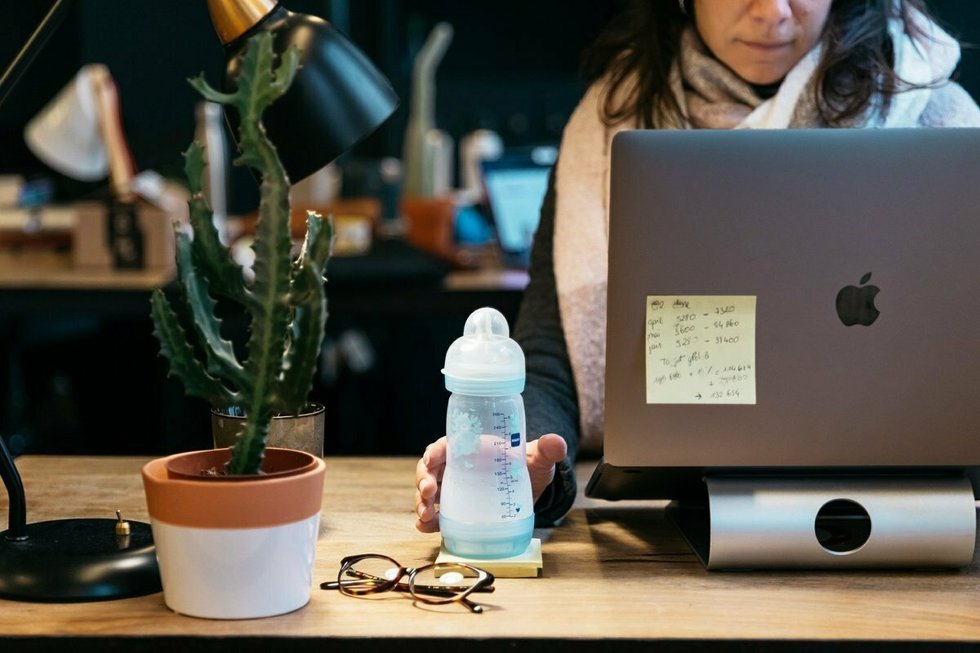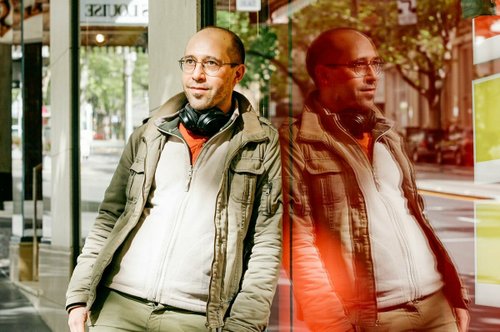How Covid is destroying the careers of mothers
Apr 22, 2021
6 mins


Journalist
Can women really have it all? Not during a pandemic, that’s for sure. With schools closing and scarce childcare options, two in five working mothers have reported taking a step back from their careers or are considering doing so. The pressure is real. Here, we speak to women who’ve had to make the difficult decision of stopping work to mind their children in the past year. While they say it hasn’t been easy, these women have also found some silver linings.
When lockdown hit in March 2020, many parents had to rapidly adjust to school and childcare closures. In the UK, only vulnerable children and families of frontline workers could still go to school or creche. Even childminders were off-limits while relying on grandparents was risky given their age group. To lighten the load, sharing childcare responsibilities equally in households with two working parents would seem the best solution—but that’s not what happened.
In a recent study commissioned by the BBC, 71% of women surveyed said that they were responsible for childcare or homeschooling during lockdowns compared with 26% of men. This didn’t come without a cost. For working mothers, juggling their job with homeschooling and childcare was incredibly stressful. According to a TUC survey of 50,000 working mothers, nine out of ten reported a deterioration in their mental health during the pandemic.
Many asked to be furloughed or were forced to quit in an attempt to cope: the Institute of Fiscal Studies reports that mothers are one-and-a-half times more likely than fathers to have either lost their job or quit since the first lockdown. It’s a stark reminder that, in heterosexual relationships, women are still sacrificing their professional lives for their families more than men.
Joeli Brearly is the founder of Pregnant Then Screwed, a charity that advocates against the discrimination of mothers in the workplace. She firmly believes that the lack of childcare and school closures are pushing women out of their jobs. “It’s destroying women’s careers,” she said. “They are being made redundant, they are being forced to cut their hours, and they are being treated negatively all because they are picking up the unpaid labor required to keep the country going.”
Forced to stop working
Kayla Boyle, 32, worked full-time as a room leader at a private day nursery in Cheltenham. On January 4, 2021, she returned from the Christmas break, and that same day, Boris Johnson announced schools would close for a second national lockdown. When she realized that she would have to quit her job to take care of her children, aged four and eight, she felt disarmed.
Boyle had no option but to ask her manager to be furloughed. Her four-year-old daughter and husband both have a rare genetic lung condition that makes them clinically vulnerable. Even as a key worker, school places were few and far between, and her husband works from home, which “pushed me down the list”, she said. “My husband is regularly on video calls for five, six hours a day. My mother-in-law is within our bubble but she’s 74 years old and [taking care of my children] is not something I could put on her, nor could I ask her to do home learning.”
Despite government guidance stating that employees can be furloughed for childcare purposes, Boyle’s manager refused. “Childcare is not one of those jobs you do for money,” she said. “You do it because you’re committed and passionate, so it was really difficult.”
Boyle’s case is no exception. One study, published in January 2021, found that twice as many mothers as fathers have had to take unpaid leave due to schools closing while another revealed that seven out of ten requests for furlough were turned down for working mums.
For Natasha Czoper who lives in Blessington, Ireland, the situation played out differently. The 49-year-old owns a vegan cafe, The Eating House, which she opened in 2019. When it was announced that schools would close in March 2020, Czoper quickly realized she would have to readjust. With her husband working full-time as a key worker in a rehabilitation clinic, and no one else to mind their seven-year-old daughter, she was forced to shut the cafe. In Ireland, schools closed entirely—there was no support for vulnerable children or key workers during lockdowns. “[People at the rehab center] are relying on my husband. They’re not pausing because of Covid. They’re not pausing what’s happening to them, and he’s a major part of their lives,” she said. “He works with them every day to help them get clean.”
Despite acknowledging the importance of her partner’s job, she can’t help but feel the sting of gender inequality. “Why is it the woman who is taking on the responsibility of minding the kids, and why is her career any less relevant?” she said.
Two different realities
For Boyle, becoming a full-time homemaker during the pandemic was not a natural transition. “Because of Covid, my social life doesn’t really exist. Work was also my social life, and that’s been taken away from me,” she said. Unemployed and homeschooling her children, Boyle felt frustrated. She has always wanted to work and being a stay-at-home parent was never part of the plan. “I want to work because it adds value for me. I want the children to see me going to work,” she said. Boyle was happy that her children were well-behaved during remote learning, but she admitted that homeschooling was a struggle. “I think school is where they should be,” she said.
“Why is it the woman who is taking on the responsibility of minding the kids, and why is her career any less relevant?” - Natasha Czoper
Frustrations aside, Boyle acknowledges there’s an upside. The family recently moved house, and she said: “It’s been kind of a blessing being home when we’ve moved house. It’s nice for us as a family not to have too much time apart, that’s really good for us at the moment.”
After closing her cafe, Czoper felt angry but also relieved. She was glad to have more quality time with her daughter, Seran Rose. And with Ireland’s weekly Pandemic Unemployment Payment (PUP) of €350, she was lucky enough to feel financially stable. “It was great to begin with to have Seran around—being with her, being a mum, and taking that opportunity,” she said.
After a few months, Czoper saw an opportunity to partially reopen the cafe with takeaway orders. Her husband could change to night shifts, staying over at the rehab center from Monday to Wednesday. During this time, Czoper would look after their daughter. Then, from Thursday to Sunday, she would work at the cafe and he would stay at home.
“Because of Covid, my social life doesn’t really exist. Work was also my social life, and that’s been taken away from me.” - Kayla Boyle
However, Czoper quickly realized this new rhythm was unsustainable and was forced to close again after Christmas. “I was wrecked, so tired. I needed a break,” she said. She was single-parenting four days a week and getting by with skeleton staff, working longer hours herself to cut costs. With Seran Rose as her priority, Czoper didn’t see any other option but described feeling guilty. “You feel guilt because you love your kid, right? So you feel guilty for wanting to do something other than mind them.”
Finding a new balance
Now schools have opened, Boyle hopes to quickly find another job at a private day nursery. Looking back on her experience, she hopes there will be significant structural change to avoid women disproportionately taking on childcare responsibilities, especially within the education system. “The structure of schooling doesn’t support the now-modern way of life where both parents work,” she said. “The bigger picture that society is built on is that one parent works, and it’s predominantly the male, and the woman is a home keeper or part-time worker. Everything functions on that basis.”
“You feel guilt because you love your kid, right? So you feel guilty for wanting to do something other than mind them.” - Natasha Czoper
Czoper’s daughter is also back at school, which has given her the opportunity to transform half of her cafe into an eco shop. While it is difficult at times, she is enjoying the challenge. However, with holidays on the horizon, she’s not sure how she will cope. “I’m meant to be re-opening the cafe soon. I don’t even know how I’m going to manage that,” she said, thinking about the conversation she will need to have with her husband. “As women, why can’t we just go to work and not think about it?”
There is little doubt that the childcare issue has contributed to what economic experts are calling the pandemic’s “pink recession” due to its disproportionate impact on women’s employment. As it stands, women’s jobs are 1.8 times more vulnerable to the Covid crisis than those of men. Let’s hope this setback on gender equality is short-lived and women, like Czoper and Boyle, can return to the workforce and focus on their careers without worrying about childcare.
Photo: Welcome to the Jungle
Follow Welcome to the Jungle on Facebook, LinkedIn, and Instagram, and subscribe to our newsletter to get our latest articles every day!

More inspiration: The Covid crisis

Debate: Should we mandate vaccines in the workplace?
We asked two bioethicists to help us unpack the arguments on both sides and explain the ethical principles underpinning our public-health policy.
Mar 01, 2022

‘Don’t give up’: 262 days of working in lockdown in Melbourne
Melbourne just made the record for the most 'confined' city in the world. What's it like being a worker there? These professionals testify.
Nov 09, 2021

Surviving the pandemic without government support
UK workers who were excluded from government support tell us about their year without work or income.
Jun 16, 2021

How the pandemic is driving a virtual tech boom
As the pandemic has accelerated the rise of remote work, it has also advanced the development of virtual technology, shaping the future of work.
Jun 08, 2021

Business travel: the view from the ground
Airlines are hopeful that business travellers will take to the skies again soon, but is that realistic?
Mar 10, 2021
The newsletter that does the job
Want to keep up with the latest articles? Twice a week you can receive stories, jobs, and tips in your inbox.

Looking for your next job?
Over 200,000 people have found a job with Welcome to the Jungle.
Explore jobs